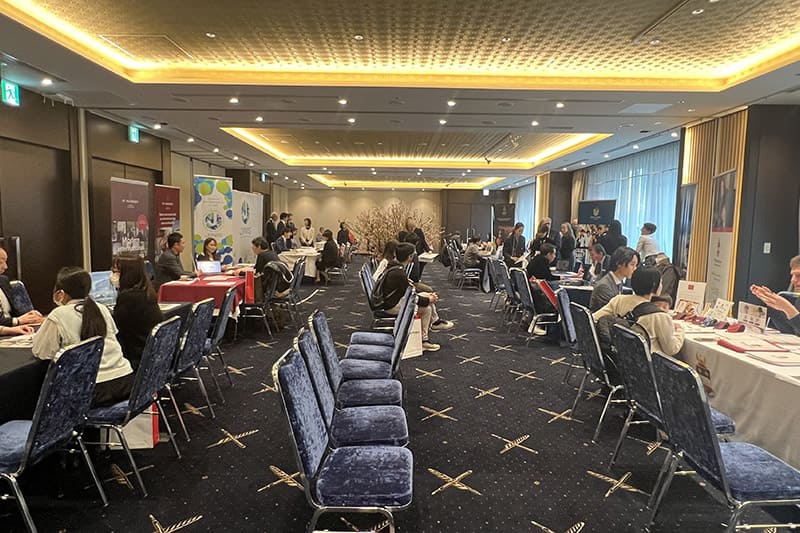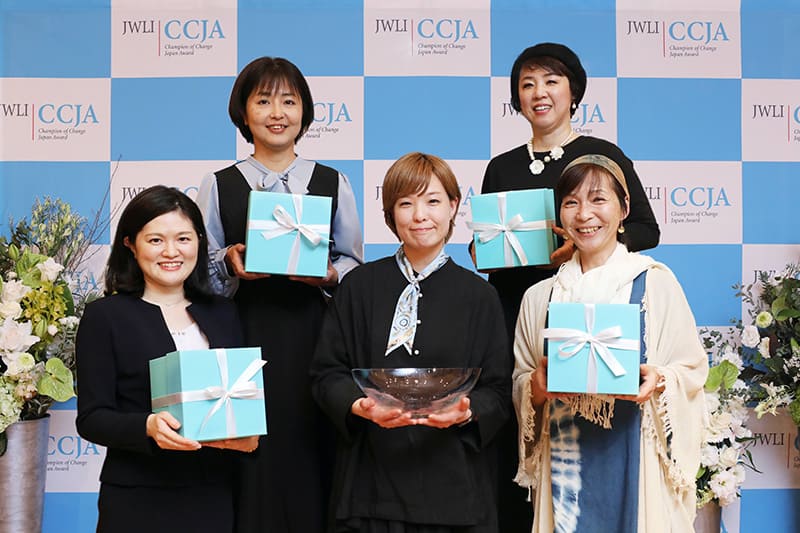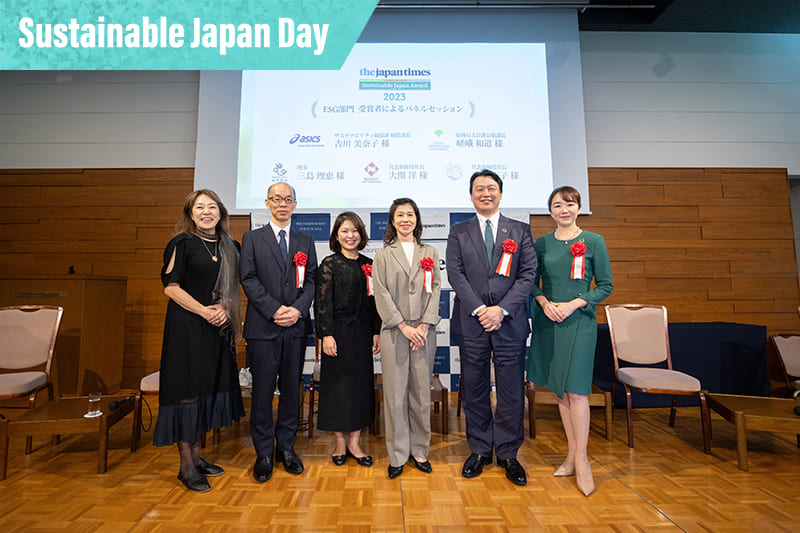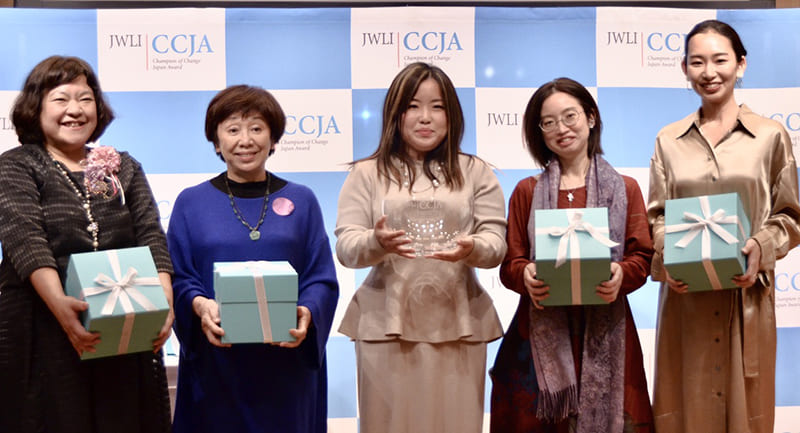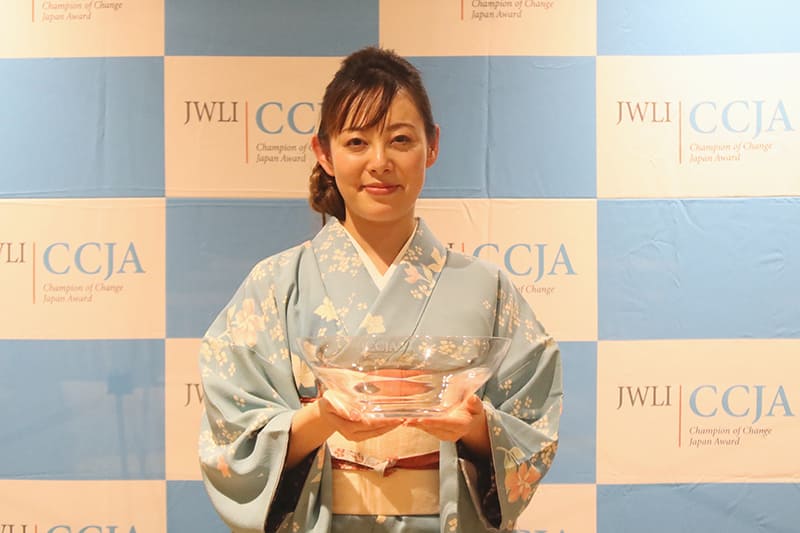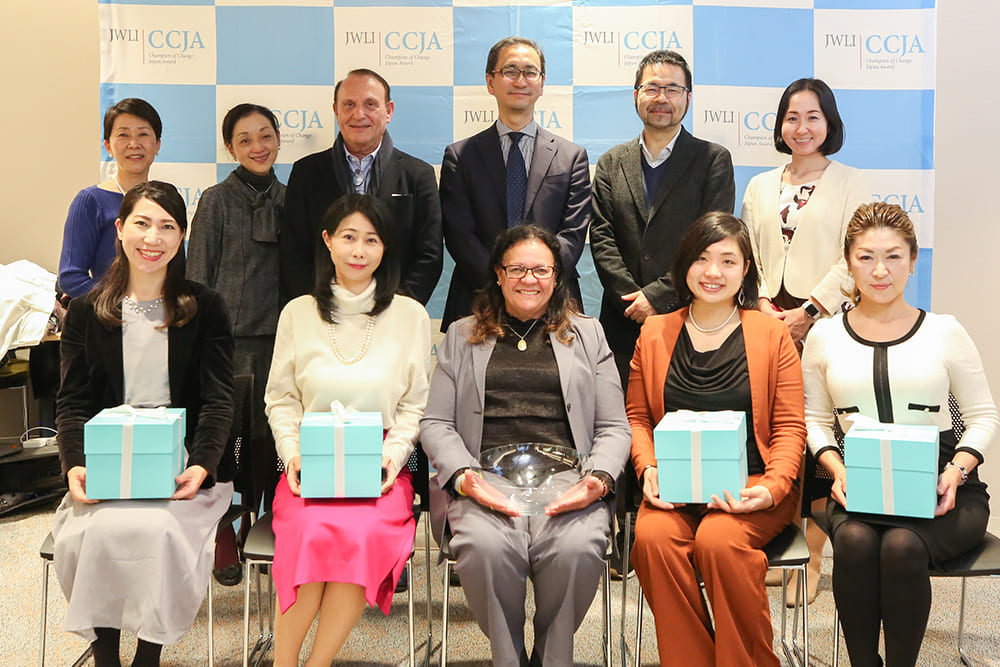November 05, 2024
CCJA winner’s nonprofit Charm helps sick foreigners
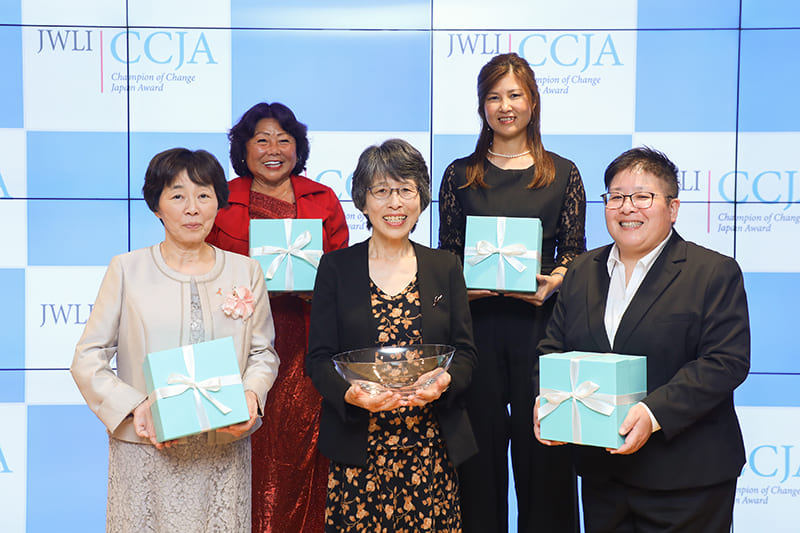
This year’s grand prize of the Champion of Change Japan Award (CCJA) went to Rieko Aoki, who runs Charm, a nonprofit in Osaka dedicated to improving access to health and medical services for all people, including foreigners living in Japan. The award ceremony and a reception were held at Dow Chemical Japan’s headquaters in Tokyo’s Shinagawa Ward on Oct. 17 to celebrate Aoki and four other awardees who were recognized for leading projects that help change society for the better and to provide a networking opportunity.
The CCJA was founded in 2017 by Atsuko Toko Fish, a Japanese philanthropist based in Boston, to recognize and encourage women leaders in Japan who contribute to society by tackling diverse social issues. She is a founding trustee of the private Fish Family Foundation, established in Boston in 1999, and the founder of the Japanese Women’s Leadership Initiative (JWLI). She was selected in 2013 for the Champion of Change Award, established by then-President Barack Obama, for her efforts in empowering women in both the U.S. and Japan. Inspired by this honor, she founded CCJA as part of the JWLI’s program to shine a light on emerging women leaders in Japan.
Five winners were selected from 212 nominations, with two rounds of selection followed by an interview. The selection committee consisted of Kozue Sawame, president of the Japanese Women’s Leadership Initiative, which is administered by the Fish Family Foundation, and five others representing five sponsors and partners. One of them was Minako Suematsu, chairperson and publisher of The Japan Times. There were also nine other sponsors and partners who supported the CCJA by providing the venue for the ceremony and additional prizes for the winners. Aoki received a cash prize of ¥1 million ($7,000) and a crystal bowl donated by Tiffany and Co. Japan Inc., one of the sponsors of the CCJA. The other four winners each received ¥250,000 and a commemorative gift donated by Tiffany.
Aoki founded Charm in 2001 after seeing the lack of access to medical care for foreigners living in Japan who had serious health problems access to medical care. “Around 2000, many women with AIDS symptoms were admitted to a hospital in Osaka specializing in the treatment of the disease. The medical professionals, social workers and counselors who dealt with these patients were surprised and wondered why they had not been seen earlier,” said Aoki.
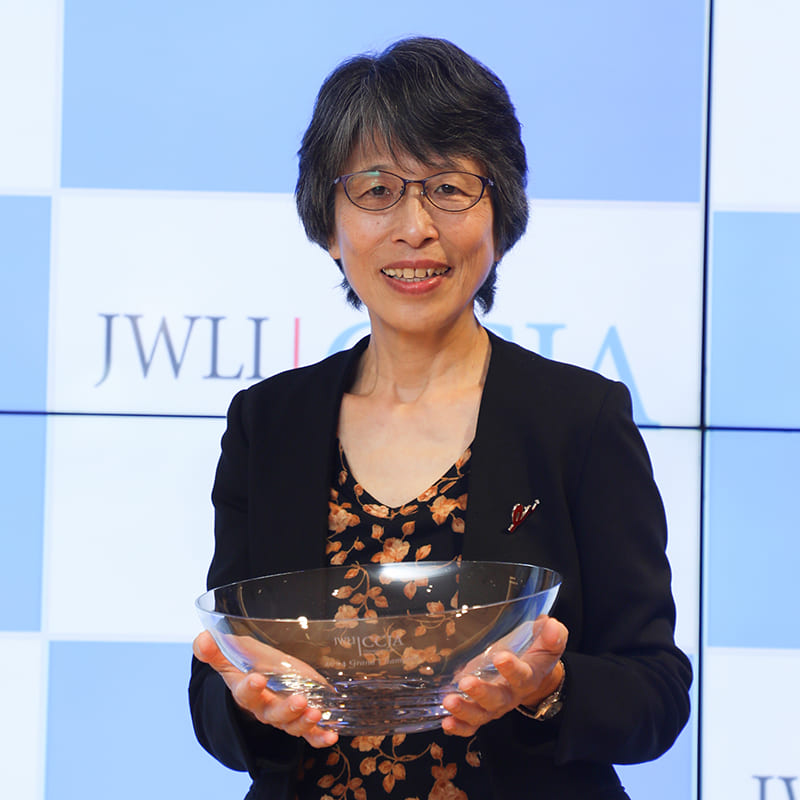
She felt the need to create an organization that could provide health and medical information to foreigners in Japan and act quickly to support them when they needed to go to a hospital. Charm also provides interpreters. “The difficulty is that it can be expensive to hire professional interpreters to maintain the quality of the interpretation, which must be ensured to treat the patients adequately,” she said. But she added that she had found hope through the CCJA, which provided opportunities to meet and network with people from different foundations and the private sector. Such meetings could lead to new funding opportunities to strengthen and expand Charm’s activities.
Commenting on the award, she said: “Many people may feel that there is not much they can do to help when it comes to medical issues. But in fact, there are many things that anyone who is willing can do, such as listening to the worries of those who are alone without family, accompanying them to the hospital and so on,” and encouraged members of the audience at the ceremony to help in their own way. She also said that since the coronavirus pandemic, some of Charm’s activities have shifted to online methods through which anyone can join in and help remotely.
“We are based in Osaka, but similar support is needed across the country,” she said, expressing the hope that Charm can work with people who share the same sense of mission and establish a base to provide support in different parts of Japan.
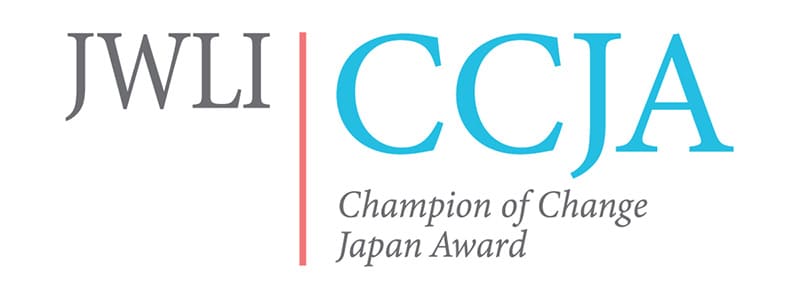
Although Charm was originally set up to help people with HIV and AIDS, in recent years it has expanded its support to people with other infectious diseases, including tuberculosis.
“We have come this far because we could not ignore the problem of one person. The problems of a few may not attract the attention of governments or make business sense for companies. But through this award, we were encouraged to learn that there are people who recognize our activities to help the few who need help,” she said.
She concluded by saying: “Civic activities are also called grassroots activities. Each root may be thin, but intertwined with other roots, they support the trunk. We hope that more people will join to make the roots stronger so that the trunk can grow large and solid to make society a better place for everyone.” The room then filled with warm applause for Aoki and the four other award winners.
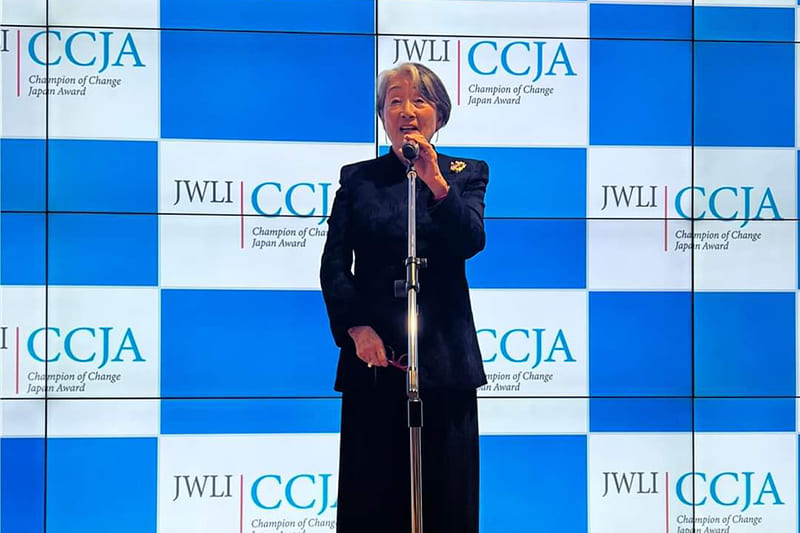
Four other winners tell of efforts for women and children
Hiromi Takahashi
Sakura Net Oyama
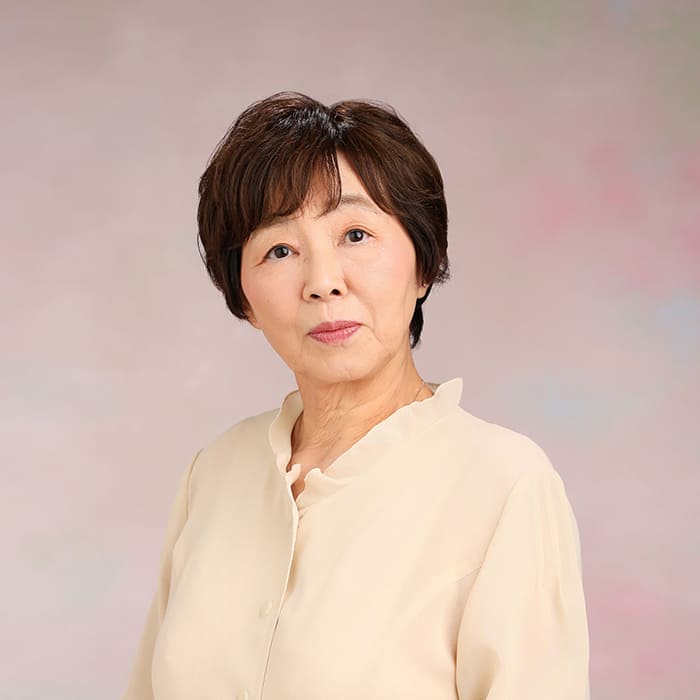
I founded Sakura Net Oyama in 2016 in the city of Oyama, Tochigi Prefecture, to help children and their families in need. Twenty years ago, there was a brutal case of child abuse and murder in the city. At the time, I was working for a local child guidance center and hoped that the government would focus more on family welfare, which I believed was necessary to prevent child abuse. However, changes were only made to catch and punish parents who abused their children. Driven by a sense of regret, I quit my job and started the organization with like-minded people to help troubled families by providing shelter, food, counseling, educational support, and other services. I hope that more people will recognize the existence of children in need, even though they may not be easy to spot, and offer a helping hand.
Kenko Nakata
Colegio Santana
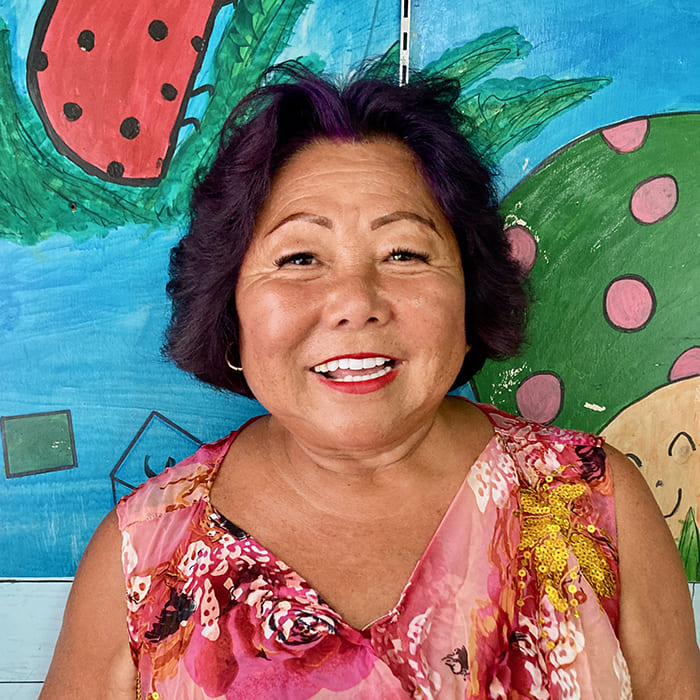
Colegio Santana was founded in 1998 as a school dedicated to the education of Brazilian children in Shiga Prefecture. I am a second-generation Japanese- Brazilian and worked as a teacher in Brazil before moving to Japan. The company I worked for in Japan had about 400 Brazilian employees, and I noticed that their children rarely played outside of the company housing. I thought this was unhealthy, and with the support of the company, I started the school to create a better learning and playing environment for them and to help them realize their dream. We now aim to provide bilingual education in Japanese and Portuguese, while taking into account the special needs of Brazilian autistic children living in Japan. We welcome those who are willing to help us provide good Japanese -language education to our students.
Kanae Nakamoto
Kanakana
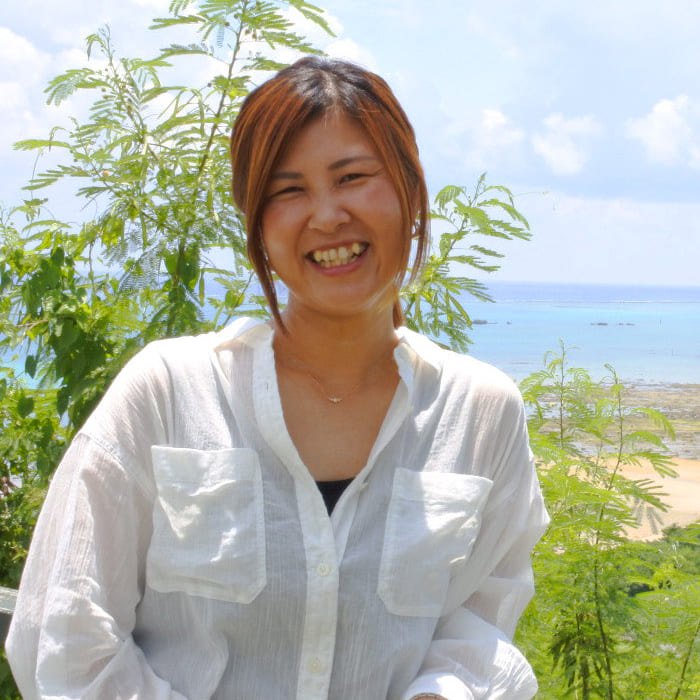
Kanakana is a nonprofit organization in Okinawa that provides after-school activities for children and support for young mothers. It started as a coffee shop I opened 15 years ago out of my own need as a mother for a place where mothers with babies could gather without worrying about disturbing other customers. Then I started offering after-school activities for elementary school students when my own children reached that age and I realized that there were children with various problems, including family problems, who were not receiving adequate support. We provide support for these children, as well as girls who have become pregnant in their teens, who are also likely to suffer from isolation. I hope that our activities will inspire others to help such youths in other areas of Okinawa, thus expanding the network of support.
Hiromi Fujita
Proud Kagawa
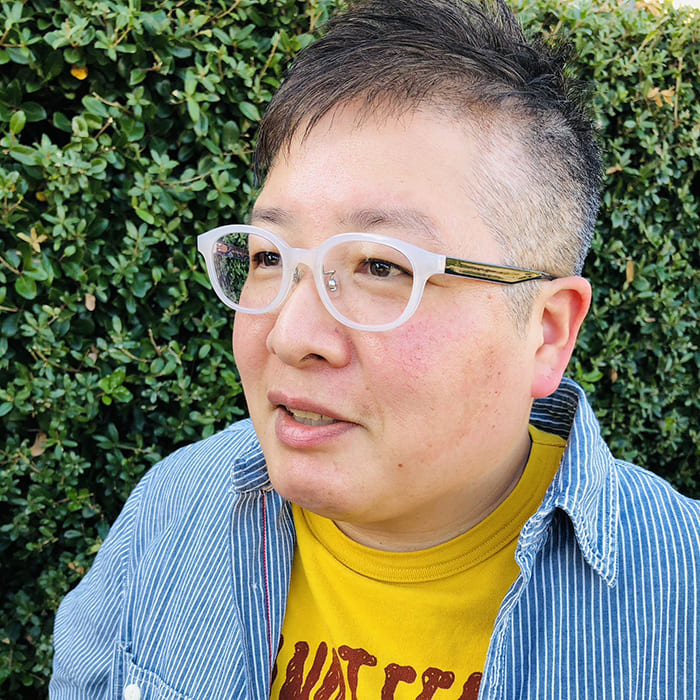
Proud Kagawa is a nonprofit organization founded in 1995 in the city of Takamatsu, Kagawa Prefecture, to improve the quality of life for minorities by conducting activities related to LGBTQ issues. From the beginning, we held social gatherings for sexual minorities to support each other, which eventually led to awareness-raising activities such as lectures and training involving a wider range of stakeholders, as well as counseling. Over the years, we began to feel that we wanted to benefit the community and expand our activities throughout the prefectures. Since 2005, we have organized an annual film festival, and next year, for the first, time Proud Kagawa will be hosting a parade. Anyone can help by showing interest, attending events, listening to those who have stories to tell and sharing their feelings with others.

